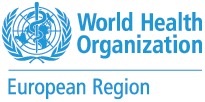
Healthy and thriving cities demand social, economic, human and planetary well-being
Utrecht, 23 November 2023
At a time of rapid urbanization and a changing climate across the WHO European Region and globally, the annual conference of the WHO European Healthy Cities Network celebrates the role of communities in creating solutions. The 2023 conference concluded in the Netherlands today with participating cities committing to 12 concrete action points for increased sustainability, health and well-being for all residents.
The recommendations were drafted by 55 cities and 19 national networks in the Region. In adopting them, mayors and senior political representatives commit to championing a well-being economy for their cities and residents in 4 key areas: planetary, human, economic and social.
In response to the state of permacrisis in the world, exacerbated by global events such as the COVID-19 pandemic, conflicts and climate change, cities stand at the forefront of a paradigm shift towards an urgently needed well-being economy approach.
Well-being economies prioritize social well-being and environmental sustainability over traditional economic growth, aligning them with existing movements such as circular economies, community wealth building and social sustainability. They go far beyond measuring gross domestic product (GDP), placing people and communities at the centre of policy- and decision-making.
“Cities have a critical role in promoting health and well-being for their residents. They are torchbearers for innovative, local solutions and initiatives, and these policy recommendations reflect the commitment and determination of cities to move closer to a well-being economy,” said Mr Robb Butler, Director of WHO/Europe’s Division of Communicable Diseases, Environment and Health.
“Cities working together will be instrumental in addressing joint challenges and seizing opportunities for urban health. Mobility, air quality, and access to green and recreational spaces are some of the crucial building blocks for well-being that must be designed with, by and for residents, no matter their age or socioeconomic status,” Mr Butler added.
Ms Kira Fortune, WHO Regional Adviser for Healthy Cities, Health Promotion and Well-being, noted, “As we mark 35 years of the WHO European Healthy Cities Network, we are convening flagship cities and national networks, placing health high on the social, economic and political agendas of local governments.”
She emphasized, “The political recommendations adopted today will build on previous successes and best practices, taking cities one step closer to achieving net zero emissions, generating sustainable youth employment, and building inclusive and cohesive societies.”
Integrating well-being across the Region is an essential step in aligning political mandates to strengthen cooperation and coordination among cities, sectors and stakeholders for action at the local level.
Cities throughout the Region have demonstrated the innovation and leadership necessary to build the sustainable and inclusive communities of the future. For example, Brno, Czechia, is leading the way with their participatory budget, which allows residents to vote on and co-create projects aligned with their values. In Reykjavik, Iceland, the Green Deal guides the city’s vision to 2030, placing people and their well-being at the heart of decision-making processes and policy implementation.
The dozen recommendations adopted today constitute a clear roadmap for cities to lead by example, supported by the WHO European Healthy Cities Network and the WHO European Office for Investment for Health and Development (Venice, Italy), regardless of which government or political party is in power.
ENDS
12 action points for thriving societies
Planetary well-being
- Protecting and enhancing the environment through improved air quality, increased green spaces, and initiatives that reduce pollution and protect biodiversity.
- Integrating well-being into urban planning with clear indicators, ensuring that decisions on infrastructure, housing, management of natural spaces, regeneration and transport give priority to human and planetary well-being.
- Promoting sustainable communities through approaches such as a circular economy and new ways to promote renewable energy sources and enhance energy efficiency while promoting novel financing mechanisms to benefit the environment and the health of residents.
Human well-being
- Giving priority to health-care services as drivers of improved health and economic outcomes, and committing to investing in initiatives that promote preventive health care, mental health, and equitable access to high-quality and nondiscriminatory health-care services for all.
- Empowering citizens through learning and development, investing in early childhood development and supporting lifelong learning opportunities, which are integral to human well-being.
- Advocating for health, security and inclusion in essential factors such as housing, food, migration and security, while recognizing the contributions of older people to communities and cities.
Economic well-being
- Promoting inclusive and sustainable economic growth, guided by proactive city leadership and a dedication to workforce well-being – a key component of a well-being economy – through public health-oriented policies such as living wages, fair and decent work, safe workplaces, and social protection to enable people to thrive.
- Fostering participatory decision-making and inclusive practices and incorporating meaningful youth engagement.
- Recognizing the responsibility of public and private actors for health-promoting and health-enabling practices, engaging civil society, implementing conflict-of-interest policies, and encouraging transparent dialogue with industry stakeholders.
- Boosting investment in cities through fair taxation and increased investment in urban centres, linked to transparent and accountable governance to ensure optimal and equitable resource allocation.
Social well-being
- Enabling individuals through public participation, trust and volunteering, seeking and encouraging diverse voices and perspectives in decision-making processes and ensuring that action is community-driven.
- Embracing diversity and inclusion and tackling health and social inequalities by ensuring that all residents, regardless of age, gender, ethnicity or place of origin, have access to high-quality health care, education, social services and life opportunities, and prioritizing community safety initiatives and programmes aimed at reducing violence and creating secure living environments.
The Network aims to capitalize on the significant role of cities in shaping prosperous, inclusive and environmentally friendly places, and to accelerate the uptake and implementation of well-being economy approaches that are effective in delivering better health and health equity at the city level.
To this end, it has initiated well-being pilot projects in the cities of Brno (Czechia), Belfast (United Kingdom), Cork (Ireland), Derry (United Kingdom), Palaio Faliro (Greece), Reykjavik (Iceland), Tbilisi (Georgia), Udine (Italy) and Utrecht (the Netherlands).
About the WHO European Healthy Cities Network
The Network was launched in 1988 as a political, crosscutting, and intersectoral initiative and movement that directly collaborates with cities across the WHO European Region. It is a crucial platform for bringing about change and achieving improved health, well-being, and equitable and sustainable development in cities across the Region and globally.
Contacts
Bhanu Bhatnagar, Press and Media Officer: bbhatnagar@who.int
Petra Hongell, Communications Officer: hongellp@who.int
Links
WHO European Healthy Cities Network
https://www.who.int/europe/groups/who-european-healthy-cities-network
Health in the well-being economy: background paper: working together to achieve healthy, fairer, prosperous societies across the WHO European Region (2023)
https://www.who.int/europe/publications/i/item/WHO-EURO-2023-7144-46910-68439
This information was brought to you by Cision http://news.cision.com
If you would rather not receive future communications from WHO Regional Office for Europe, please go to https://optout.ne.cision.com/en/2HU4yKLY8JKdW9NNsVfsiqZKkT95oRM3GY9MN2DweEpNGAKDjadzeYTsUGda5qBSTvE7yF43unqjFDHUUfvmni9ymFF3fjAoWRDWmPErS48G14uU9dRqjjUBwj7MeXCA81w1.
WHO Regional Office for Europe, Marmorvej 51, Copenhagen, 2100 Denmark

